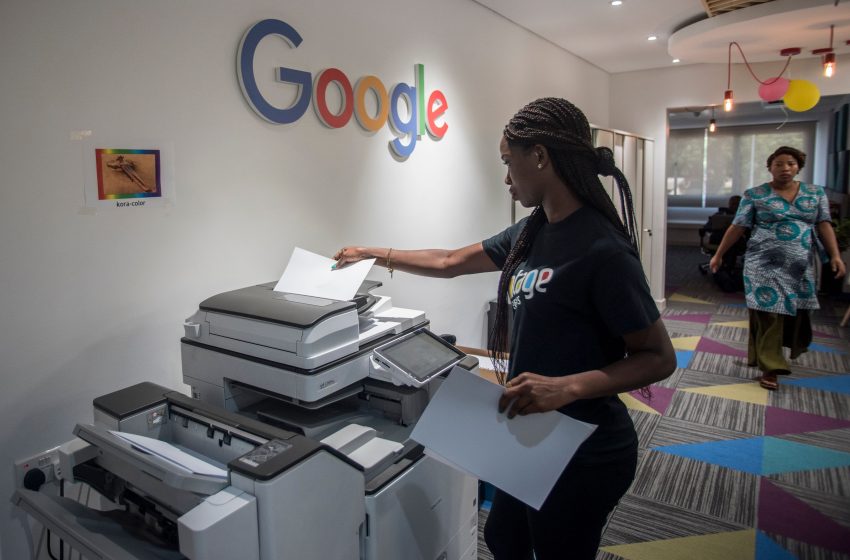
Google Invests $5.8 Million For AI Development In Africa
During a trip to Nairobi, Google President of EMEA Matt Brittin today announced $5.8 million in Google funding to support foundational AI and cybersecurity training this year across Nigeria, Kenya, and South Africa. The funding will support organizations providing foundational AI skills to workers, equipping them for the digital economy; educate teenagers about AI and its safe and ethical use, empowering future generations; equip non-profit leaders with AI knowledge to enhance their impact and drive social change; and support the public sector to develop and utilize AI solutions.
The funding recipients include:
- Data Scientists Network Foundation will be provided with a $1.5 million grant to create a program that trains unemployed and at risk Nigerians in foundational digital and tech training, with the long term goal of building advanced skills in data and AI;
- Nelson Mandela University and other universities will participate in the org Cybersecurity Seminars program, which includes $500,000 in grant support alongside course content and extensive training. The goal is to help 200 students learn hands-on cybersecurity skills while also supporting the digital defenses of 250 local organizations.
- Raspberry Pi Foundation, who will provide $300,000 to the Young Scientists Kenya and Data Scientists Network Foundation to roll out AI literacy education for Kenyan and Nigerian youth.
The announcement came as part of the visit of Matt Brittin, the President of Google in EMEA, to Kenya and Nigeria. Speaking from Nairobi, he said: “AI could contribute $30 billion to the economy of sub-saharan Africa. But for this to be a meaningful change, everyone needs to be included. The $5.8 million announced today will help bring people, businesses and nonprofits along to take part in harnessing technology for good.”
Meanwhile, Jen Carter, Head of Tech & Volunteering at Google.org, who was also in Nairobi, said: “We’ve seen how AI can help social impact organizations accelerate and scale their work. The $5.8 million funding announced today will help organizations to create AI tools that will benefit not only communities across Africa, but across the globe.”
Google also provided funding to help organizations supporting local businesses, nonprofits and entrepreneurs. Through the Google AI Impact Challenge, Google.org funded the AirQo project – which uses AI to measure and tackle air pollution across Africa. Meanwhile Google is supporting Jacaranda Health, through a $1.4 million grant and fellowship, to advance PROMPTS – their AI-enabled support tool which provides personalized SMS advice to new and expecting mothers across Kenya.
This new funding builds on the $20 million of Google.org support for organizations helping Africans develop digital skills from Google’s economic opportunity initiative. In addition, Grow with Google, which is separate from Google.org, trained over 6.5 million people across Africa in 2023 alone in digital skills to help them build their career or business.
Google is also committed to supporting Africa’s fast growing developer system. There are nearly 716,000 professional developers across Africa, and Google’s own study showed that half of them have been part of a Google program.
Speaking from Nairobi, Nigerian-born Alex Okosi, Managing Director of Google Africa, said: “Ever since the opening of Google’s first office in Sub-Saharan Africa in 2007, we’ve been a partner in Africa’s economic and digital transformation: working hand in hand with governments, policymakers, educational bodies and entrepreneurs. Digital skilling and access has been a key part of that work. We’ve enabled hundreds of millions of Africans to access the internet for the first time and empowered millions of businesses and creators with digital tools. Many of them are young, entrepreneurial and creative – ready to drive new innovation and opportunity across the region.”
In 2018, Google opened an AI Research Centre in Accra, Ghana – and in 2022, it announced a Product Development Center in Nairobi, Kenya. In both offices, teams use the power of AI to solve problems across the continent and around the world.


![Phishing and scams have increased in Africa. [Photo - Courtesy]](https://techtalk.africa/wp-content/uploads/2022/08/Phishing.jpg)
![Kaspersky researchers have found a new malicious campaign that developers need to be ware of. [Photo - Courtesy]](https://techtalk.africa/wp-content/uploads/2022/08/Kaspersky.jpg)
![LightWays is a fully enclosed, flexible ducting system ideal for protecting, segregating and managing fibre optic cables in the data centre environment. [Photo - Courtesy]](https://techtalk.africa/wp-content/uploads/2022/08/Siemon_LightWays.jpg)



